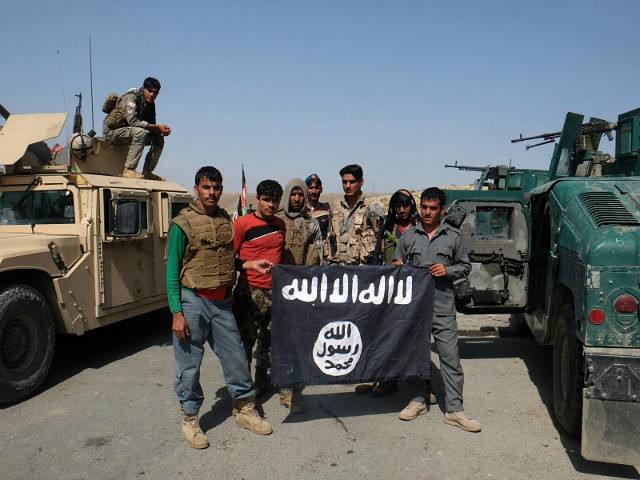The leader of the Islamic State’s branch in the Afghanistan-Pakistan region, Hafiz Saeed, has been killed, according to regional Afghan military commander Gen. Mohammad Zaman Waziri.
His comments reportedly came while he was visiting the Islamic State branch’s stronghold in eastern Afghanistan’s Nangarhar province, which sits along the country’s border with Pakistan.
While in Nangarhar’s remote mountainous district of Achin, “Waziri would not say where, how or exactly when [Saeed] was eliminated,” notes Voice of America (VOA), adding that “U.S. defense officials say they have been unable to confirm the death.”
However, Khaama Press (KP) quotes the Afghan general as saying the region’s Islamic State chief was executed in Nangarhar’s Achin district, a claim that is consistent with reports from early this year.
Almost a year to the day after the local Islamic State (ISIS/ISIL) branch, known as the Khorasan Province (IS-KP/ISIL-K), announced its presence in the Afghanistan-Pakistan region back in January 2015, Nangarhar officials confirmed the jihadi leader’s death, according to TOLO News.
The Afghan news outlet reported on January 15, 2016:
[Nangarhar’s] Achin district chief Ghalib Mujahid told TOLOnews that Hafiz Saeed was killed with 10 other fighters in the air strike which was carried out in Zhwara area in the district…
This comes after reports in last July confirmed the death of Hafiz Saeed along with 30 others in a drone strike in the district.
Saeed was a former leader of Tehreek-e-Taliban Pakistan (TTP) before pledging allegiance to Daesh [ISIL-K].
Citing the Afghan Ministry of Defense, KP now points out that Afghanistan is investigating reports of Saeed’s death.
Khaama Press notes:
The Ministry of Defense of Afghanistan officials have said they are aware of the reports regarding the death of… Saeed but an investigation is underway to confirm his death.
This is not the first time reports have emerged regarding the death of Hafiz Saeed in eastern Afghanistan.
However, the commander of the 201st Silab Corps of the Afghan National Army [ANA] General Zaman Waziri has said Saeed was killed along with around 30 others in Achin district.
In late July, the U.S.-backed Afghan National Defense and Security Forces (ANDSF) launched a major offensive against ISIS’s Khorasan Province in Nangarhar, which was deemed an ISIL-K stronghold soon after the group established its presence in the region in January 2015.
“The operations were launched to prevent the terror group from gaining further foothold in the country as they attempted and managed to consolidate operations with the main terror group in Syria and Iraq,” reports KP.
According to the Wall Street Journal (WSJ), the Taliban and their rival ISIL-K have recently agreed on a ceasefire in eastern Afghanistan.
American Gen. John Nicholson, the top commander of U.S. and NATO forces in Afghanistan, has said the truce between the two terrorist group’s does not “reflect a broader agreement.”
VOA reports:
Authorities in Afghanistan on Monday claimed to have made major successes against the Taliban and Islamic State, saying national security forces have killed hundreds of fighters, including key leaders linked to both groups.
Gen. Nicholson revealed late last month that at least five American troops have already been injured in the offensive against ISIL-K in Nangarhar.
The Special Inspector General for Afghanistan Reconstruction (SIGAR), a watchdog agency appointed by the U.S. Congress, recently confirmed that violence in Afghanistan is concentrated along the country’s border with Pakistan, which U.S. and Afghan officials have accused of providing sanctuary to terrorists.
Strongholds linked to both ISIL-K and the Taliban are located in provinces in eastern and southern Afghanistan that lie on the Pakistan border, namely Nangarhar, Helmand, and Kandahar.
SIGAR points out:
The ANDSF have struggled to respond to the Taliban’s growing national presence. There has been particularly stiff resistance in provinces along the border with Pakistan, such as Helmand, Kandahar, and Nangarhar, with reports that 68.5% of security incidents occur in southern, southeastern, and eastern Afghanistan.

COMMENTS
Please let us know if you're having issues with commenting.